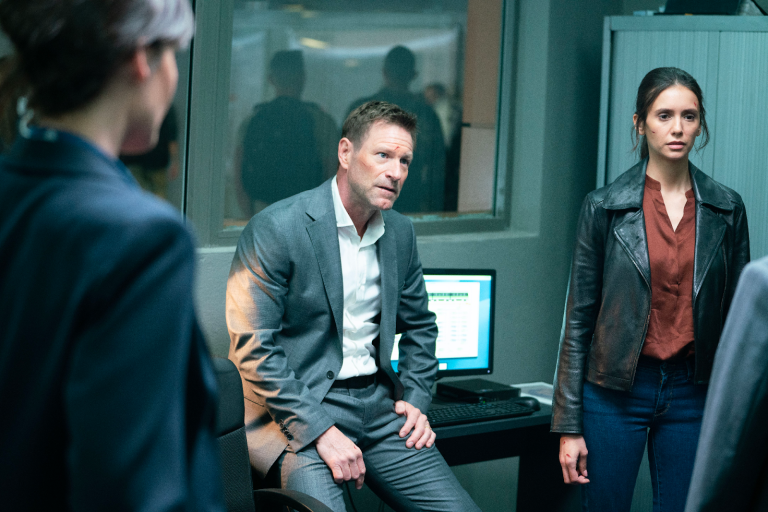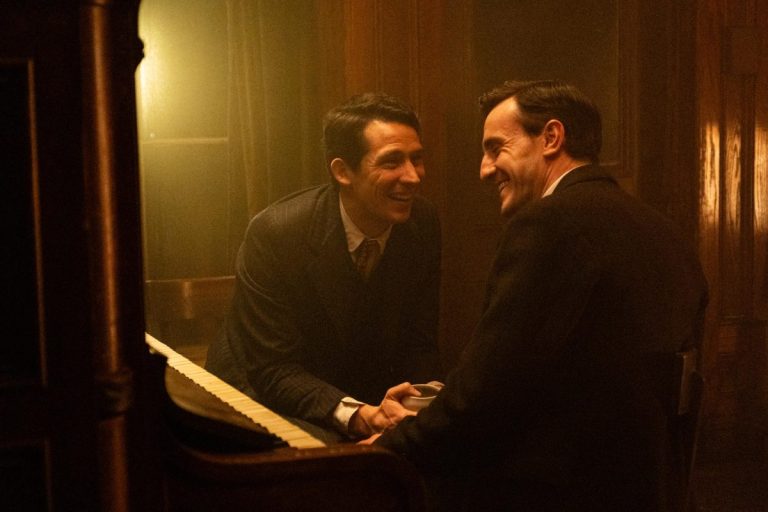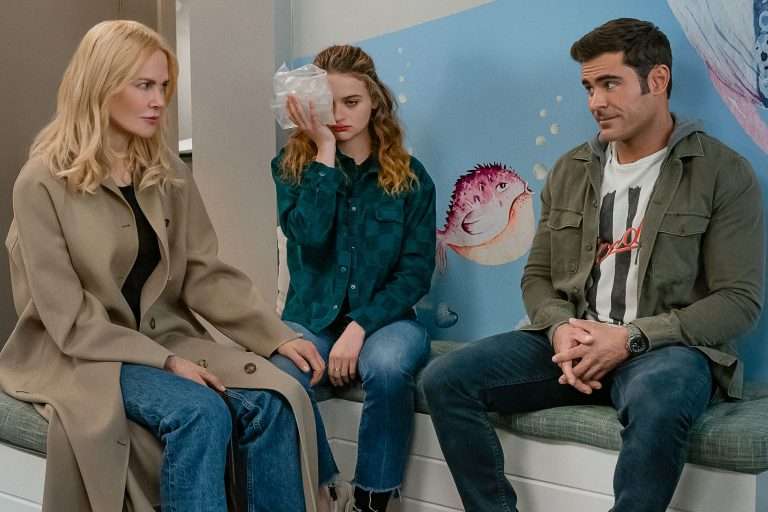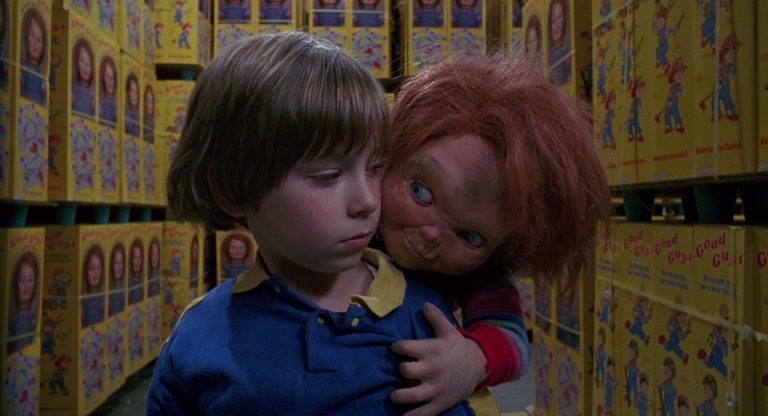Halfway through “Site” (2025), reporter Naomi (Miki Ishikawa) talks about generational trauma, and how it can haunt bloodlines over decades. This sort of traumatic mirroring isn’t unheard of, where our genes store latent memories without our minds fully comprehending their nature. This is the crux of “Site,” Jason Eric Perlman’s latest sci-fi thriller that employs time distortion and particle acceleration to dissect the most uncomfortable interpretation of this sentiment.
The results are a mixed bag, but Perlman’s knack for capturing dread while oscillating between the eerie and the mundane shines brighter than any narrative flaws. This is the kind of slow-burn horror that we need more of, where its high-brow premise doesn’t shy away from being ballsy or ambitious enough when it comes to unraveling the central conceit.
“Site” is part family drama, part sci-fi horror, and the more grounded aspects of the tale culminate in Neil (Jake McLaughlin), an everyman trying his best to be a good husband, father, and human being. The mundanity of Neil’s existence is disrupted once he and his friend/business partner, Garrison (Theo Rossi), visit an abandoned military test site with the intention of flipping/selling it.
As soon as they enter, they’re greeted with telltale signs of trouble: lab equipment strewn messily under an ominous red light, hastily abandoned spaces that once brimmed with life, and a half-burnt identity card that might or might not be marked with radiation. However, Garrison and Neil soon find themselves face-to-face with something that defies standard expectations: a particle collider emitting a sickly ocean blue hue, acting as the intersection of memory and grief.
Once Neil is plagued with horrific visions about a certain containment camp during World War II, we begin to understand that these unsettling events are rooted in history. This is where things get a bit iffy, as Unit 731 — also known as Manchu Detachment — was a real biological/chemical warfare unit that engaged in horrific human experiments during the Second Sino-Japanese War (and WWII).
Roughly 14,000 people were murdered here before being subjected to dehumanizing experiments that included amputation, vivisection, and bio weapons testing, to name some. The unspeakable horrors of Unit 731 are dramatized via time distortions that bleed into the present, establishing an almost karmic connection between Neil and co. and the victims of this historical atrocity.
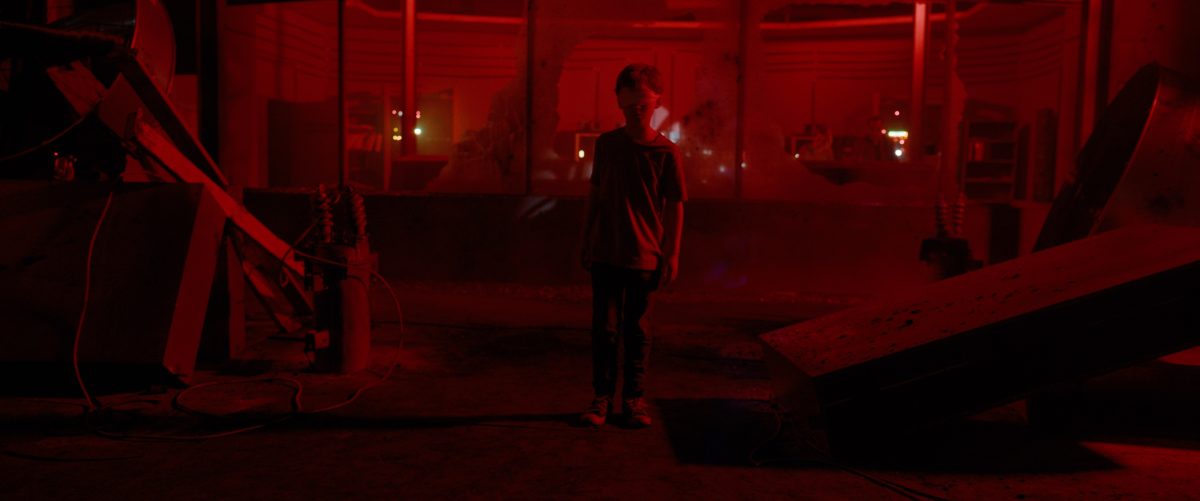
While this narrative conceit works, the links formed between the past and the present start to feel a bit unsavory, as the real-life trauma inherent in the lives lost in Unit 731 is too spine-chilling for the trauma metaphor employed here.
While Neil’s distress weighs heavily enough, it is not remotely comparable to what his karmic twin experienced in the past, and even the most well-meaning attempts to link the two come off as insensitive. If you’re able to look past this tactless narrative thread, “Site” ramps up its horror with remarkable competence, where it uses the erosion of identity to remake what kind of person Neil can become.
Everyone affected by this phenomenon conveys their stunned fear with nuance, but I do wish that Elena (Arielle Kebbel) had gotten more time to mire in the ethical conundrum of taking a leap of faith without any violent visions to convince her to do so. Kebbel has always been a high-caliber performer, which peeks through whenever she is onscreen, even when she’s mostly relegated to the role of a distressed mother doing her best for her son.
All other performances are consistently compelling across the board, with McLaughlin standing out as the complex, messed-up Neil, who is constantly on a quest to outrun his mistakes and do better for the people he loves. Neil understands that trust broken is often impossible to rebuild, but desperately clings on to hope anyway, even when the world tempts him with the opportunity to evade accountability.
This well-woven character drama feels more sincere than the sci-fi horror that revolves around it, as Neil’s arc carries a visceral element that can be felt deep in the souls of anyone who has spent their life compensating for the mistakes of their younger selves.
“Site” might feel a bit too convoluted at times without a fully fleshed-out philosophy to anchor it, but it is a worthwhile genre entry that accomplishes a lot with its language of grief-fueled disorientation. There’s also a lot of heart to this story, which is always a welcome respite for a narrative so steeped in The Horrors™, so fragmented in its exploration of painful memories.





